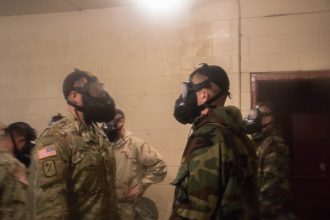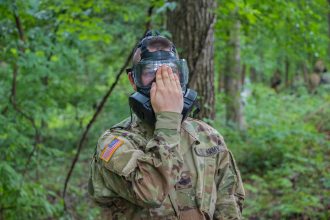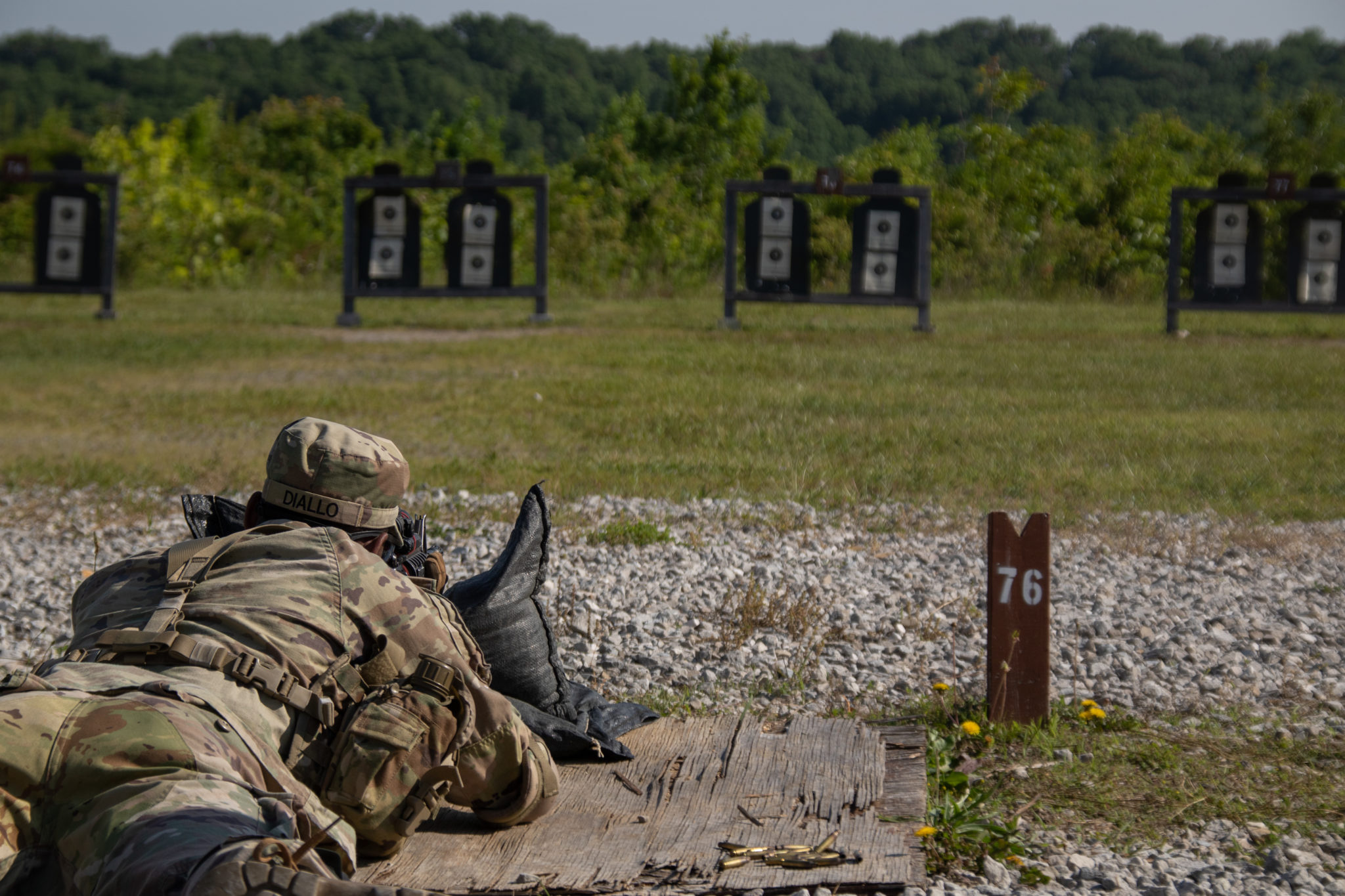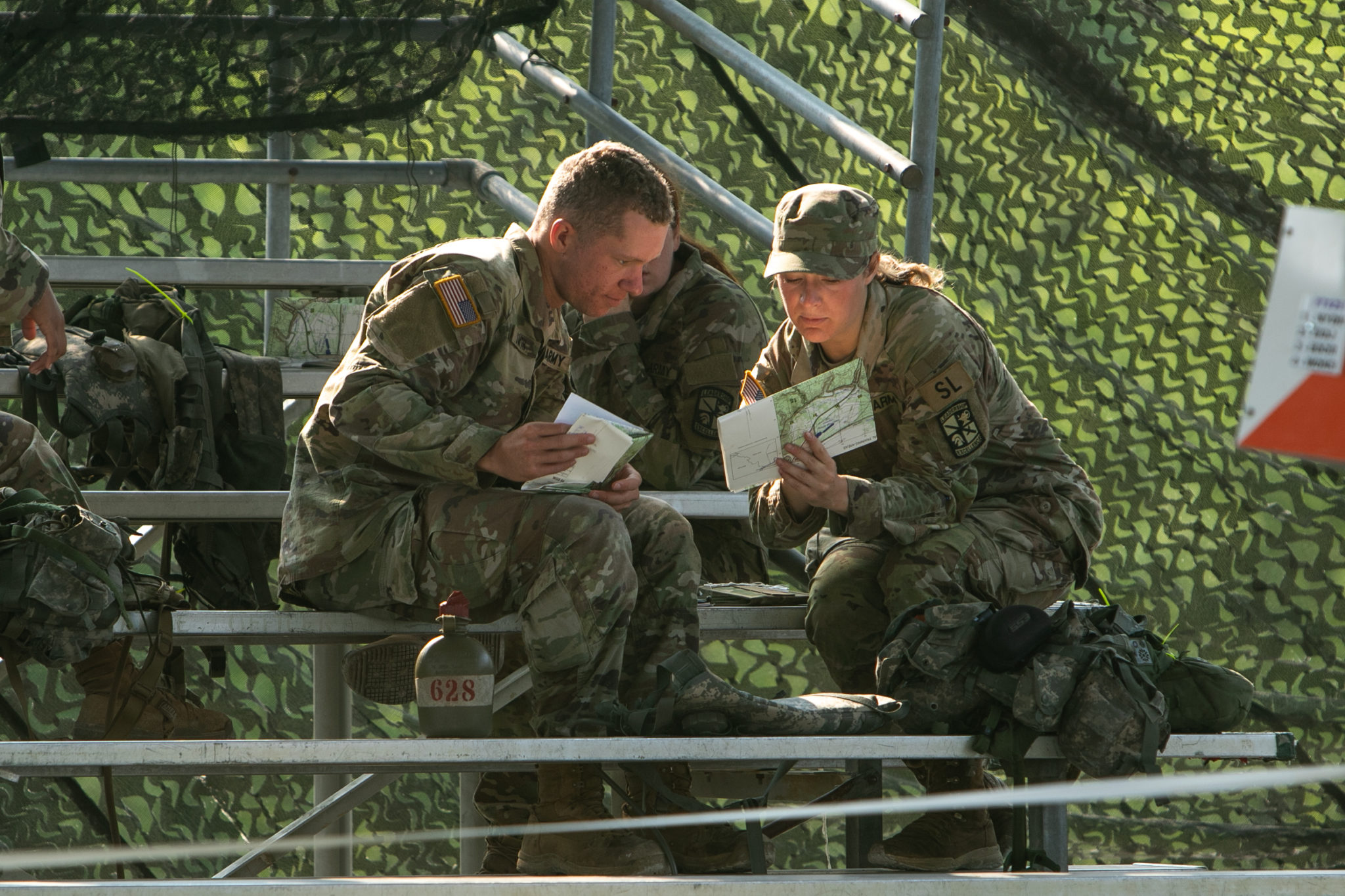Cadets in Advanced Camp, 3rd Regiment began their Friday afternoon by stepping into the Confidence Chamber.
During Advanced Camp, Cadets undergo training for Chemical, Biological, Radioactive, and Nuclear Attack. This training ultimately leads up to the Confidence Chamber, where Cadets are exposed to CS gas.
This training exercise is meant to give Cadets confidence in the effectiveness of the equipment that the Army provides in case of a chemical attack.

3rd Regiment, Advanced Camp gain confidence in their equipment and abilities during Cadet Summer Training 2018. (Fort Knox, Kentucky, 22 June) Photos by: Jakob Coombes
When they first enter the Confidence Chamber, the Cadets are suited up in their MOPP gear, including a mask. Then the Cadets are asked to take their mask off so that they can feel confident that their MOPP gear was protecting them until they took it off.
One of the most important pieces of equipment that Soldiers have in case of chemical attack is their mask. During training, Cadets are required to have the ability to don their masks in 9 seconds or less.
The Army has upgraded the masks used from an M40 mask to an M50 mask. There are a few differences for these masks including number of filters and time that the mask can be used.
The M50 has two filters, compared to the M40’s one filter. These filters can last approximately 24 hours in the case of a chemical attack, whereas the M40 filter only lasted around 8 hours.
The M50 mask also has many features including a water tube that allows Soldiers the ability to stay hydrated, and a plugin that helps Soldiers to continue to speak into their radio.

3rd Regiment, Advanced Camp gain confidence in their equipment and abilities during Cadet Summer Training 2018. (Fort Knox, Kentucky, 22 June) Photos by: Jakob Coombes
This is how Cadets correctly don their mask:
- Open promask carrier, grab the mask with the right hand and take the mask out
- Place chin in the chin cup
- Use the left hand to pull the head harness over the back of the head
- Fasten and tighten brow strap and temple strap
- Use both hands to tighten the cheek straps
- Press the right hand against the face of your promask and exhale as hard as you can
- Press both hands on the filters and breathe in
In those seven steps, Cadets are able to clear and seal their promasks, allowing them to breathe clearly and continue the mission in case of a chemical attack.




